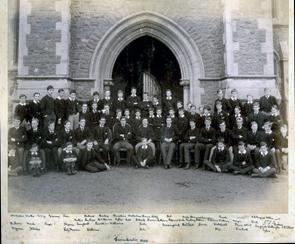
5 minute read
OC Originals
Ralph Vaughan Williams, Composer (R1890)

Advertisement
Ralph Vaughan Williams



‘Noisy’, ‘talking’, ‘playing the fool’ – these are all beaks’ comments on a normal, lively 14-year-old named Ralph Vaughan Williams. They may not have appreciated his singleminded passion for music, but his potential was certainly not lost on Mr George Robinson, Master in Charge of Music and founding Housemaster of Robinites.

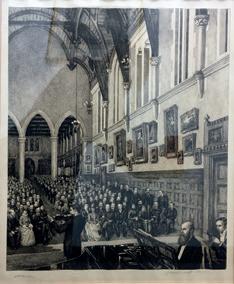
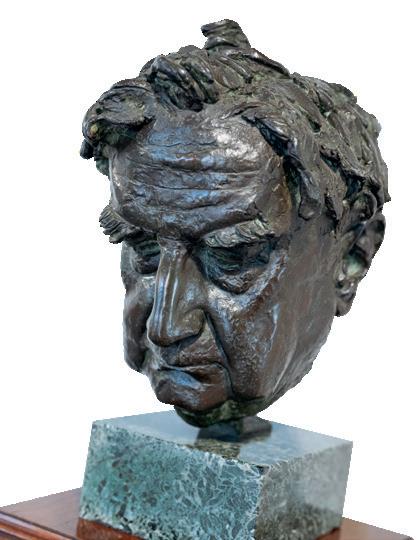
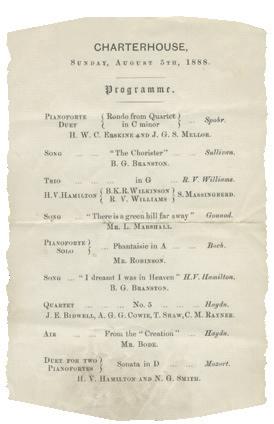
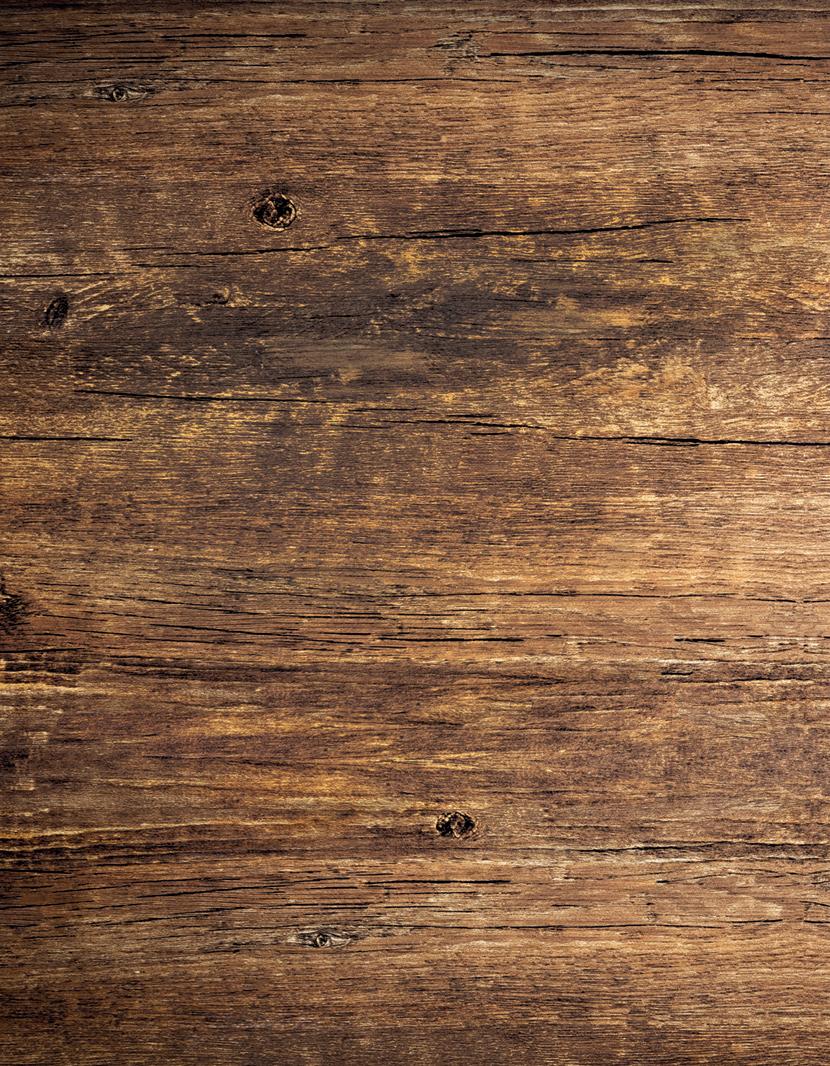
Saunderites 1887
Robinites 1889
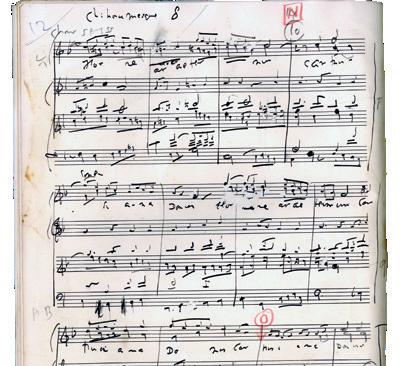
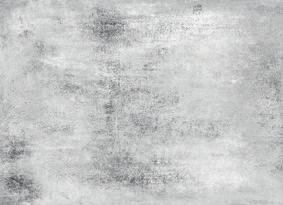

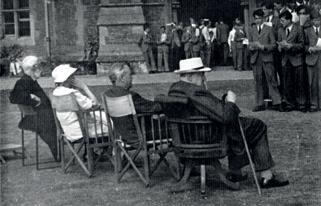

Ralph came to Charterhouse in 1887 to join his older brother in Saunderites. It was not uncommon for pupils to arrive at different points throughout the year and, if space was not immediately available in their House, they were temporarily allocated to Robinites, which acted as a small junior holding House. Ralph stayed briefly in Robinites and then duly moved to Saunderites, with the Headmaster, William Haig Brown, as his Housemaster. Far more unusual was the fact that, two years later, he then returned to Robinites on the invitation of the Housemaster to be Head Monitor. It is not unreasonable to assume that Robinites offered a calmer atmosphere than the much larger Saunderites House, far more conducive to composing and music practice.
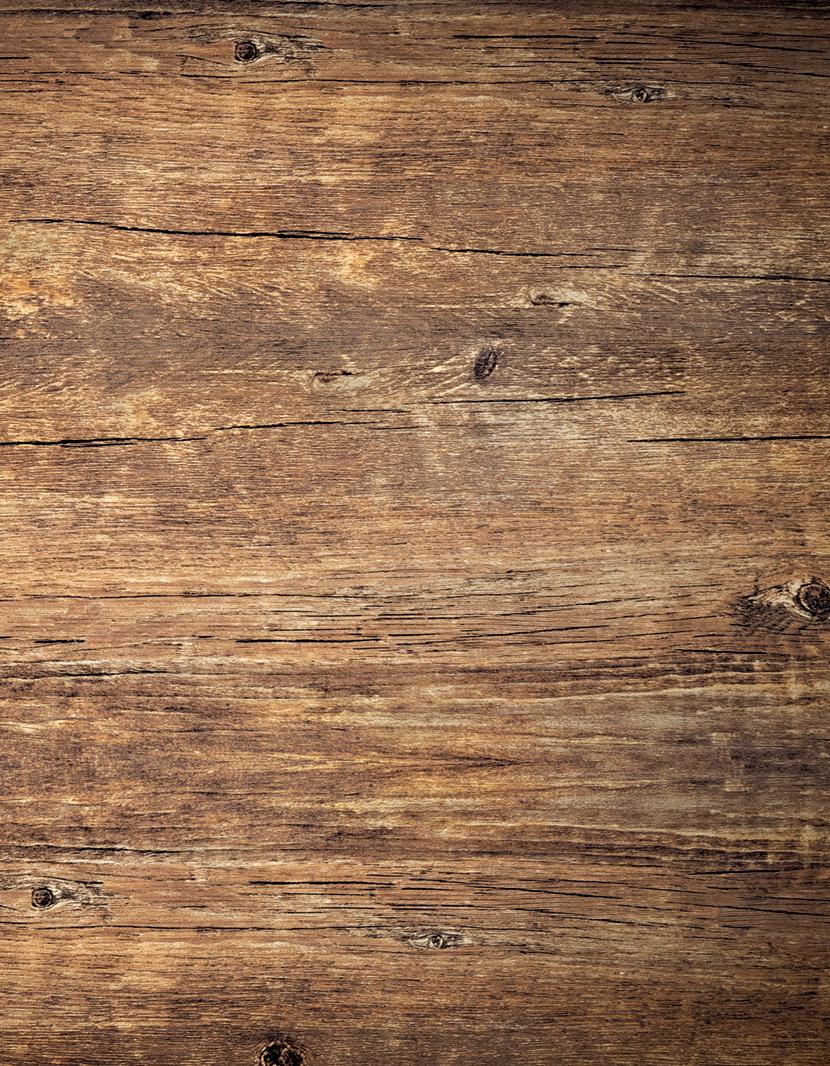
Music was not taught as part of the School curriculum but, nevertheless, a variety of musical experiences were available. Parents could pay extra for individual music tuition – the violin teacher at Charterhouse was an eminent but very elderly violinist named Joseph Dando, so it is likely that he would have taught Ralph the viola; he also learnt the piano and organ. In addition, there were a number of instrumental and choral groups. The School orchestra was run by Mr Frederic Girdlestone (BH18671912) who was a keen amateur musician. “I was one of the two violas, the other being the famous Mr Stewart (‘Stewfug’) whose chief business in life was to preside with complete inefficiency at ‘extra school’ [ie detention]: however, he was a good viola player and a great help in the orchestra. One of my first practical lessons in orchestration came from playing the viola part in the slow movement of Beethoven’s first symphony, when I was excited to find that my repeated notes on the viola were enriched by a long holding note from Mr Becker’s horn.”
Every Saturday evening there were entertainments in Hall, sometimes from professional visiting musicians and actors, but often performed by staff and pupils. Ralph performed regularly, including several performances of his own compositions:
“One of the most astounding events of my school musical life took place when Hamilton and I [Herbert Vivian Hamilton, g1888] decided to give a concert of our own compositions. It was my task to approach Dr Haig Brown, the Headmaster, for leave to use the School Hall. Dr Haig Brown was a formidable man, and in later life I should never have dared to make the request, but leave was obtained, and we gave the concert… I was complimented after the concert by Mr Noon (BH1873-1907), the mathematical master, who said in his well-known sepulchral voice: ‘You must go on.’ That is one of the few words of encouragement I have ever received.” The concert featured a Trio by Vaughan Williams, performed by four string players!
Following on from this success, Mr Girdlestone asked Ralph to organise a concert of Welsh music as part of a series of four national programmes. He not only recruited suitable performers, but wrote his own homage to Wales (a March entitled Cambria) to open the concert. A review in The Carthusian approved the concert as “a short though very interesting programme” and Cambria as “undoubtedly the best amateur performance of the evening, excepting perhaps Mr Marshall’s ‘Hark Afar the Bugle’”. Concert programmes show that Ralph was performing in small string ensembles and also piano duets, with fellow pupils, beaks and also with the Headmaster’s daughters. He learnt the organ because his family did not consider music to be a suitable career for a gentleman, with the exception of being a respectable church organist.
Choral music was another important aspect of Ralph’s musical education. The choir sang for Chapel services, as it does today, and also performed in concerts: “Then there was, of course, the School choir which practised once a week in the time otherwise devoted to ‘extra French’ and was therefore very popular. Choir and orchestra used to meet once a year for a grand concert at the end of the summer, and occasionally for an oratorio: I remember taking part in Handel’s ‘Judas Maccabeus’.” When not making music, Ralph was also an enthusiastic member of the Cadet Corps, rising to the dizzy heights of Lance Corporal, and a regular contributor in the French Debating Society.
All in all, despite that fact that Music was not treated as an academic subject, there were opportunities to perform and appreciate music at Charterhouse, providing at least some preparation for Vaughan Williams to study at the Royal College of Music in 1890 and later at Trinity College, Cambridge. He became famous as one of the greatest English composers of the 20th century, but always kept in touch with his old School. He opened what is now known as the ‘Old Music School’ in 1940, on which occasion he also performed with the School orchestra in Haydn’s Toy Symphony, playing the cuckoo “solemnly, and moreover artistically”, with the Headmaster, Robert Birley (BH35-47), conducting! In 1950 he composed additional music for the Charterhouse Masque (page 12), and he wrote reminiscences of his School life for The Carthusian magazine. The Charterhouse Ralph Vaughan Williams Music School was named in his honour and opened by his widow, Ursula, in 1983.










